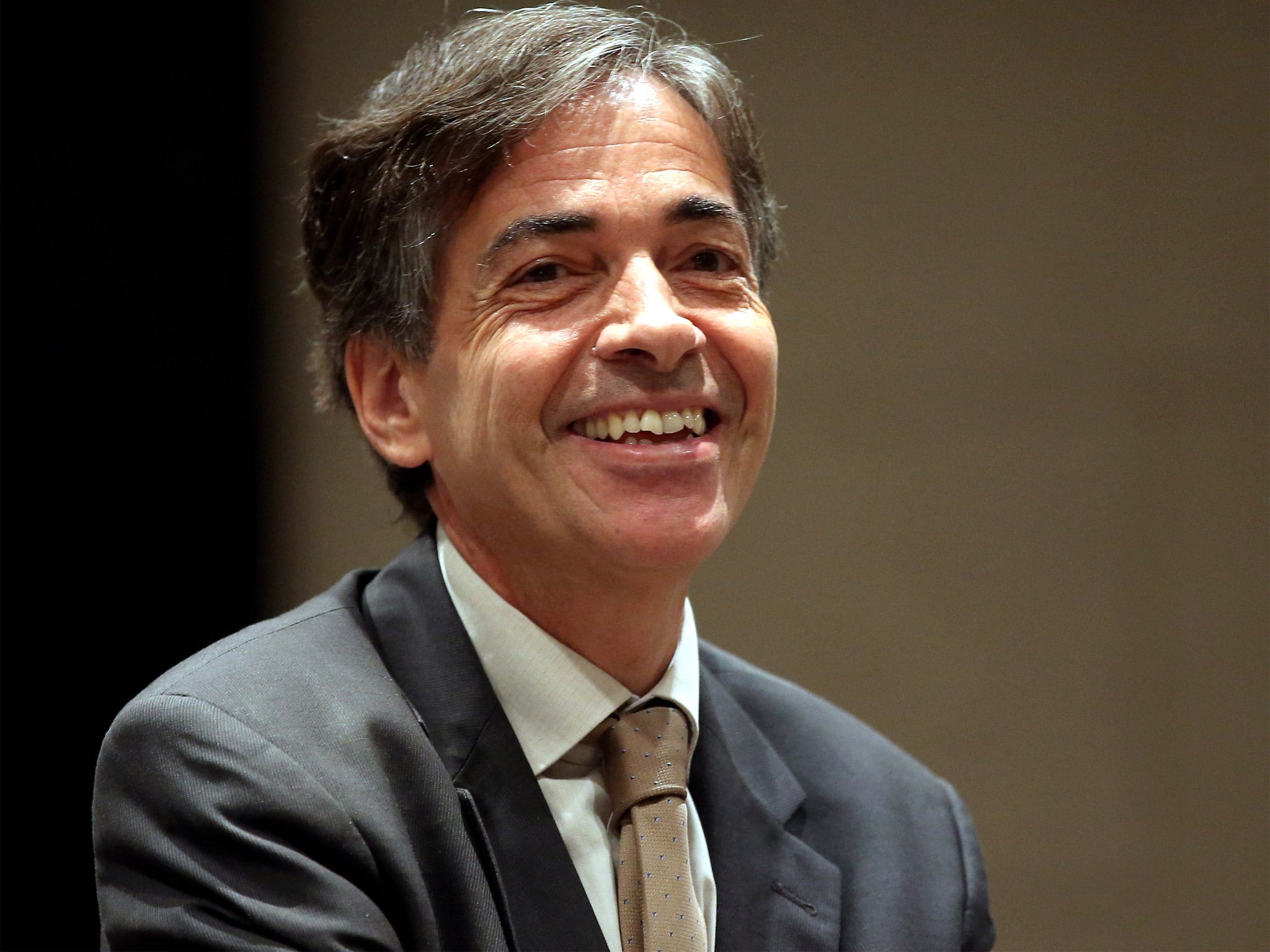World Cup 2014: Bullish Brazil insist there is 'no panic' and they will be ready for kick-off
Government minister in charge of tournament claims he is ‘confident, excited and proud’ about delivering fantastic event

Your support helps us to tell the story
From reproductive rights to climate change to Big Tech, The Independent is on the ground when the story is developing. Whether it's investigating the financials of Elon Musk's pro-Trump PAC or producing our latest documentary, 'The A Word', which shines a light on the American women fighting for reproductive rights, we know how important it is to parse out the facts from the messaging.
At such a critical moment in US history, we need reporters on the ground. Your donation allows us to keep sending journalists to speak to both sides of the story.
The Independent is trusted by Americans across the entire political spectrum. And unlike many other quality news outlets, we choose not to lock Americans out of our reporting and analysis with paywalls. We believe quality journalism should be available to everyone, paid for by those who can afford it.
Your support makes all the difference.The Brazilian government minister in charge of organising the World Cup has issued a robust defence of his country’s troubled preparations for the tournament, insisting there is “no embarrassment and no panic” and the event will “surprise the world”.
The Sao Paulo stadium scheduled to host the opening game on 12 June is still not ready to Fifa’s satisfaction and there remains widespread concern over the ability of the country’s infrastructure to cope. Last night Jérôme Valcke, Fifa’s chief executive, tweeted there was also a “race against the clock” for the Arena das Dunas in Natal to be finished in time for its first game on 13 June. However, Luis Fernandes, Brazil’s deputy minister for sport and the official charged with running the tournament, insists that everything will be ready and will run smoothly.
Fernandes admitted mistakes had been made in the initial disjointedness of preparations but claimed there was a “prejudice” in repeated international criticism of developing nations in their attempts to host major sporting events.
In a bullish performance over the course of an hour-long interview with international journalists, Fernandes time after time expressed his confidence that all would be all right not only on opening night but throughout the tournament across its dozen host cities.
“There is no embarrassment and no panic,” said Fernandes, speaking from Brasilia, the country’s capital. “We are absolutely confident, excited and proud that we will deliver a fantastic World Cup in Brazil.”
The final test event at the Arena de Sao Paulo, where Brazil open the tournament against Croatia, takes place on Sunday to ensure the 20,000 temporary seats can be properly tested. It leaves only 11 days for alterations if there are any problems. Fernandes said that adjustments could be made “up to the opening match”. Half the 12 World Cup stadia missed the completion deadline of the end of last year and Fernandes admitted that had brought “extra pressure” in a scramble to complete the grounds. He said the same thing had happened before last year’s Confederations Cup and that had run to plan.
Fernandes also admitted the government were caught out by the level of protest during the Confederations Cup. This week the Brazilian team bus was surrounded by striking teachers as it left Rio en route to the team’s mountain base in Teresopolis. The minister says the authorities are prepared to deal with any protest of any size and will not seek to stop them so long as they remain peaceful.
“We were all surprised by the scale of protest during the Confederations Cup and despite the surprise of those demonstrations the cup was a success,” said Fernandes. “We don’t see any problem at all in peaceful demonstrations. What we cannot tolerate are acts of violence or vandalism and we will have no tolerance of those. The security of the World Cup will be guaranteed by the Brazilian state.”
Preparations have also been dogged by a succession of strikes but Fernandes suggests that will not be an issue during the tournament and says he does not expect the contingency plans developed in case of transport strikes to be required. He also brushed aside criticism of unfinished development projects at a number of airports around the country as well as incomplete local transport services, claiming they had never been intended for completion for the World Cup.
“In richer countries there is prejudice directed against developing countries and their capacity to deliver major sporting events such as the World Cup and Olympic Games,” said Fernandes. “There is prejudice in public opinion in more developed countries directed against developing countries. There were the same types of doubt and prejudice about the Confederations Cup in Brazil – that Brazil wasn’t prepared to hold that and it was a huge success. It was the main test event for our World Cup preparation. We will respond to whatever misconception exists with achievements, with concrete results. We know what has been built and we are confident Brazil will surprise the world with a successful World Cup.”
The cost of the tournament has attracted criticism from inside Brazil with around $3.6bn (£2.15bn) spent on constructing the 12 grounds. Fernandes said the investment in stadia amounted to “less than one per cent” of the amount the government had invested in health and education over the last four years.
Join our commenting forum
Join thought-provoking conversations, follow other Independent readers and see their replies
Comments